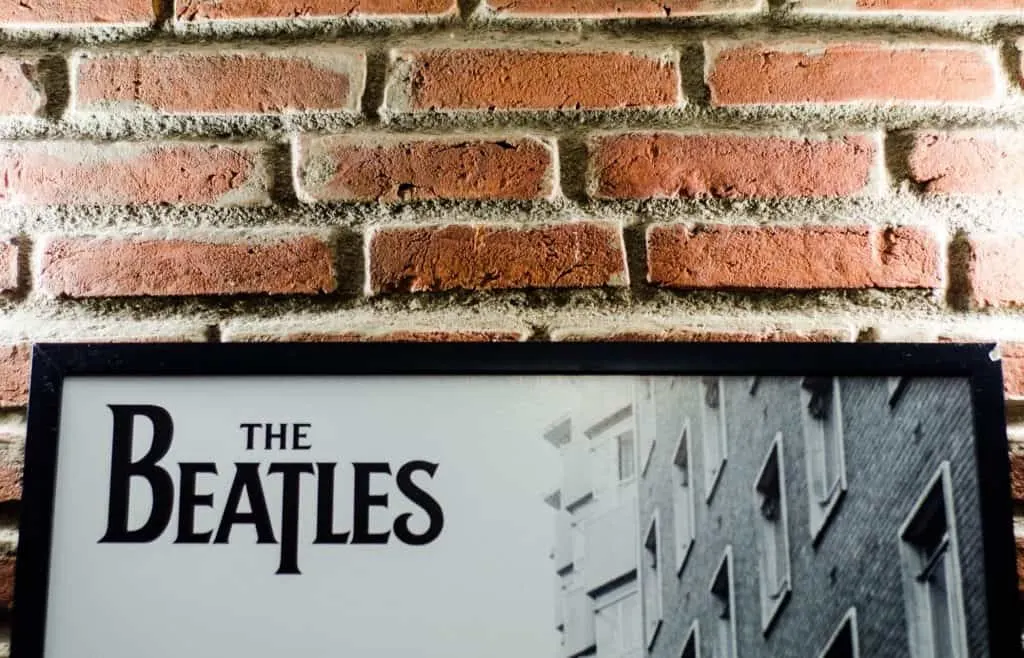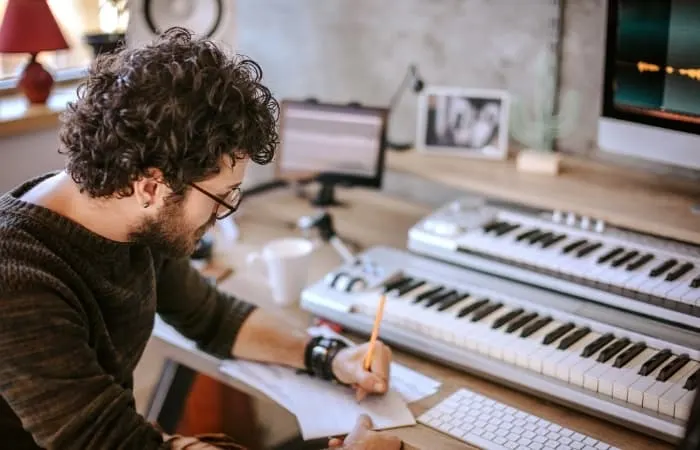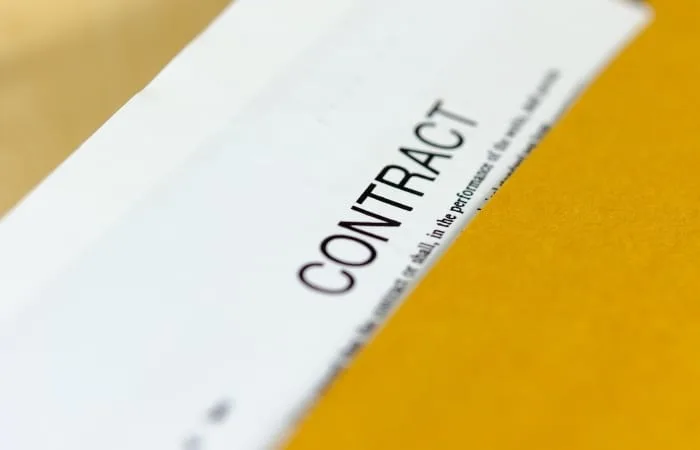Songwriters have been a major part of the music industry for decades, but what about producers? Do they deserve songwriting credits as well? This issue has come up in recent years, and it will continue to be debated.
Some people think producers are just hired hands, while others feel like they should get credit because they helped create the songs.
There are many different opinions on this subject, so we’ll take a deep dive into each side and find out do producers get songwriting credits, plus lots more!
Before we get into who should get what, let’s look at what roles a songwriter and record producer have.
What Is A Songwriter?

The first step in understanding producer credits starts with identifying what constitutes a “songwriter” and who qualifies for this designation?
A “Songwriters” means authors or composers (other than those whose contributions were merely incidental). This definition excludes anyone else involved, such as an arranger but includes lyricists if they meet one more criterion – namely writing words alone without music being present.
A songwriter is someone who writes the lyrics and melody to a piece of music. If a songwriter specializes in writing lyrics, they are usually referred to as a lyricist and can often be paired with a songwriter that excels in creating melodies. Often, the songwriter does not perform their own work, but they will often be credited as the songwriter.
How Are Song Writers Credited?
It’s common for a song to have more than one writer; each often is credited in the order that they were involved with writing it. So if three people wrote on a track, their names would appear as A-B and C (A is first).
If two of these individuals collaborated but didn’t write anything individually before meeting each other – like John Lennon & Paul McCartney did when forming Beatles (songwriting was credited as John LENNON AND PAUL MCCARTNEY) – both parties can share the songwriter credit.

This also applies even though only some lyrics may come from either party; just because someone else helped out doesn’t mean you get all rights.
Now we know what the songwriter does and how they are credited, let’s take a look at the producer’s role.
What Does The Music Producer Do?
A producer helps create music by making decisions about what sounds should be used and how they should be arranged. Gone are the days of disappearing for weeks on end to a recording studio in a country retreat; most modern-day producers work from their home studios!

The modern-day producer is a jack of all trades. They can be responsible for the song’s production, mixing, and even the mastering process.
This massively differs from what a record producer would do back in the day. Traditionally, the producer’s role would bridge the recording process between the artists and recording engineer and take care of the mastering process between recording and manufacturing.
The producer would oversee all aspects of production, from hiring musicians to arranging their parts in a song’s arrangement.
And they were heavily rewarded for their work, often receiving huge sums of money from major record labels along with royalties from the sales of records.
Do Producers Get Songwriting Credits?
The producer’s credit is usually listed in the liner notes of an album, and they are also often credited as a co-writer on songs that they produced. However, this isn’t always guaranteed.
For example: if you’re producing someone else’s song but don’t write any lyrics or melodies for it, then there will unlikely be any mention whatsoever about your involvement with the track when it’s released for purchase (unless agreed upon otherwise).
A producer can be credited as a co-writer if they contribute significantly to a song’s writing, but only in some cases. For example, if a producer is working with an artist on their album and collaborates with writing the lyrics for one or more songs, that would be enough.

The recording artist may not be aware that the producer has been credited with writing or producing songs because it’s typically done behind-the-scenes by record labels to avoid paying more money in royalty fees when releasing the music.
The only way producers can get a songwriting credit without contributing significantly in some form of writing (lyrics/melodies) are by being given a writing credit as co-writers from another writer who has contributed significant input into those areas.
This usually happens when there’s been a collaboration between two artists where both have written different parts but not all together.
In these cases, it’s up to the record label whether the producer is credited for any point during production. Sometimes, labels will decide against crediting someone because doing so could lead to legal implications further down the road over royalties.

So the bottom line is a producer’s credit can vary depending upon how much input was given into writing lyrics or melodies.
On paper, this doesn’t look great for the producers; however, it’s worth noting that producers are still often rewarded for their work, and they can make some good money from a flat fee for their work plus a percentage in royalties.
And with that said, let’s take a look at royalties.
Publishing Royalties
A royalty is a payment made in exchange for an asset’s use (in this case, a song). The music industry is often given to artists and composers in exchange for them using their work (music).
There are several different types of royalties, including performance royalties, mechanical licenses, and synchronization rights.
Songwriter Royalties
Music royalties are the money paid to songwriters, composers, and the music publisher for each time a song is played.
Songwriters are also paid a royalty for every copy of their song sold, and they also get a share of the song’s publishing deal. Royalties are usually split between the songwriter and the artist they wrote the song for.
If we look at what constitutes authorship in music and how royalties work, we find two main factors: who wrote or composed each part and how much effort went into writing those parts.
In other words, did one person write all three verses? Did they collaborate? A composer can get songwriting credit even without being listed among writers because he/she may have written just some notes within the composition–even though not every note might qualify them.
Mechanical Royalties
Mechanical royalties are a type of royalty paid to the owner of a song for each time it is played on any device, including radio, television, and internet streaming services.

To qualify for this type of royalty, you must have written at least one note in your composition and be listed as an author on the copyright form.
The amount of mechanical royalties you receive is determined by the number and type(s) or use. For example, if your song is played on the radio, you will receive a higher mechanical royalty than if it was only streamed online. The more types of use granted to someone else (e g., for commercial purposes), then typically there would be an increased rate.
Performance Royalties
A performance royalty is a fee paid to the writer or composer of musical work every time it’s publicly performed. Performance royalties are usually given by venues where concerts and other live events occur, such as theaters, nightclub restaurants, etc.

For example: If you wrote, “I’m Your Baby Tonight” (Whitney Houston), then anytime someone performs this song in public, they have an obligation under US Copyright Law to pay mechanical licensing fees, which includes both your share from any sound recordings made before February 15th, 1972.
Synchronization Rights
When songwriters or artists co-write a song, they have the chance to earn royalties through a synchronization license that grants them a share of streams or plays.
This grants permission to release the song in video format. This type of permission also called sync rights or synch rights, are granted from one party (“music users”) who requests it for use in their product (video) which belongs to another party’s company.
Songwriting Split
A contract with their publisher determines a songwriter’s split of the royalties. The typical splits are 50/50, 60-40, and 70 – 30 (in favor of the writer).
This means that if you wrote 100% or more for an entire composition, then your share would be at least fifty percent; otherwise, it could range from thirty up through seventy percent depending on how much work was done in collaboration between writers.

The royalty rates vary according to whether there has been any mechanical reproduction made under granted authority.
Final Words
Despite producers and songwriters being under the same contractual umbrella, there is a lot more to songwriting credit than meets the eye. A producer credit is certainly not a given, so it is important to know the difference between the producer and songwriter roles.
If you are a music producer in this situation, you should provide a contract that specifies the percentage of songwriting credit you are entitled to.
If this is not possible, it may be worth considering hiring an entertainment lawyer or music attorney who can help clarify your rights and ensure you’re protected in any future negotiations with other parties involved, such as publishers.

If you are a songwriter, it is important to know that there may be other parties involved in creating your work. If someone else has helped with writing or production on this track, they will also have some say over how much credit should go where and what percentage each party receives for their contribution to date and future royalties from sales.
Things can get complicated quickly in these collaborative situations, so do not be afraid to negotiate the production credit beforehand.
You may relate differently about how much credit each person deserves or disagree with another artist’s vision for their contribution.
Still, it is important that all parties are happy and feel like they contributed equally to avoid conflict down the line, especially if you have a hit song on your hands.

 Want to connect with other music producers for help and guidance?
Want to connect with other music producers for help and guidance?